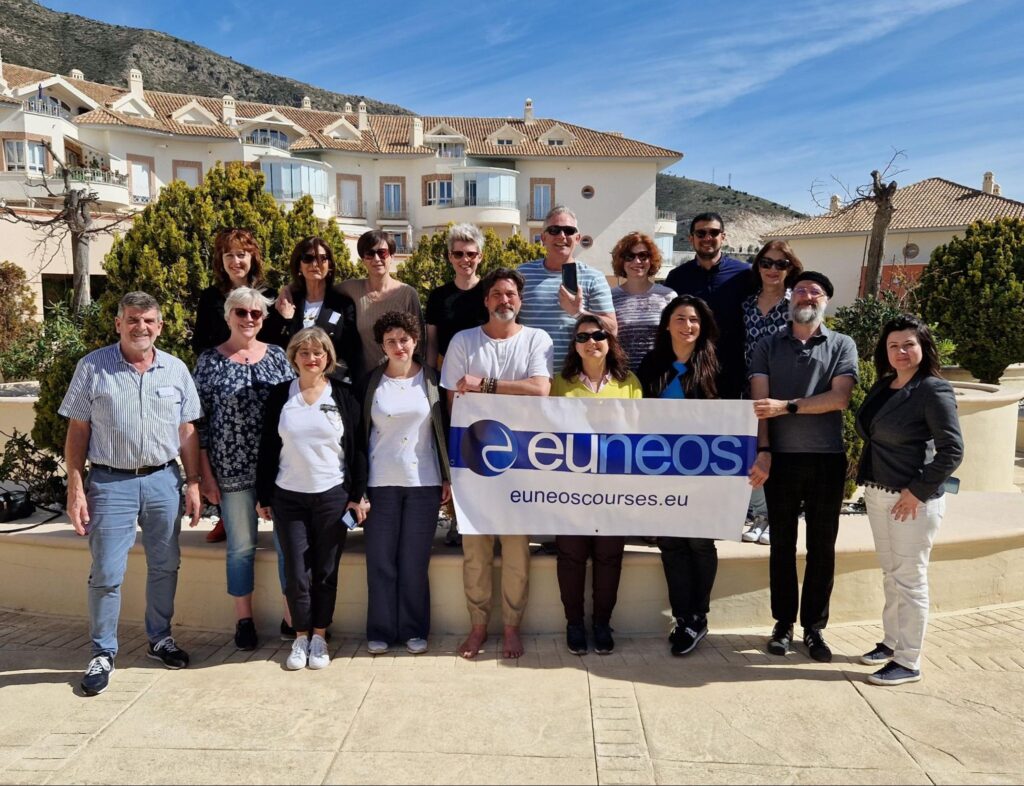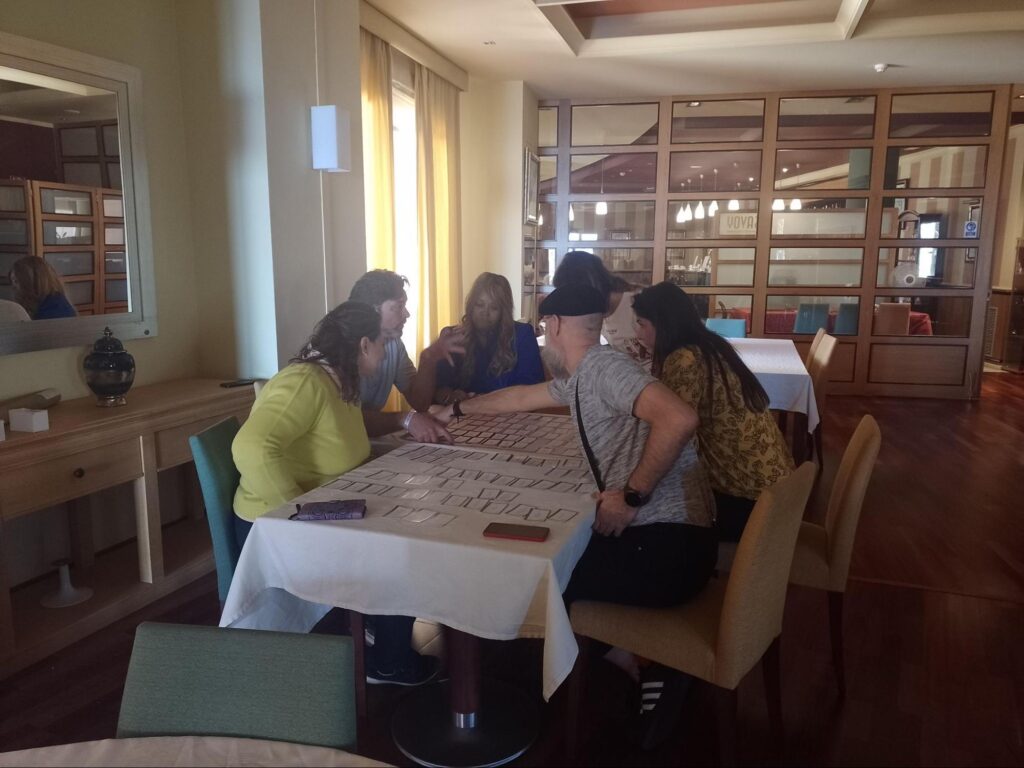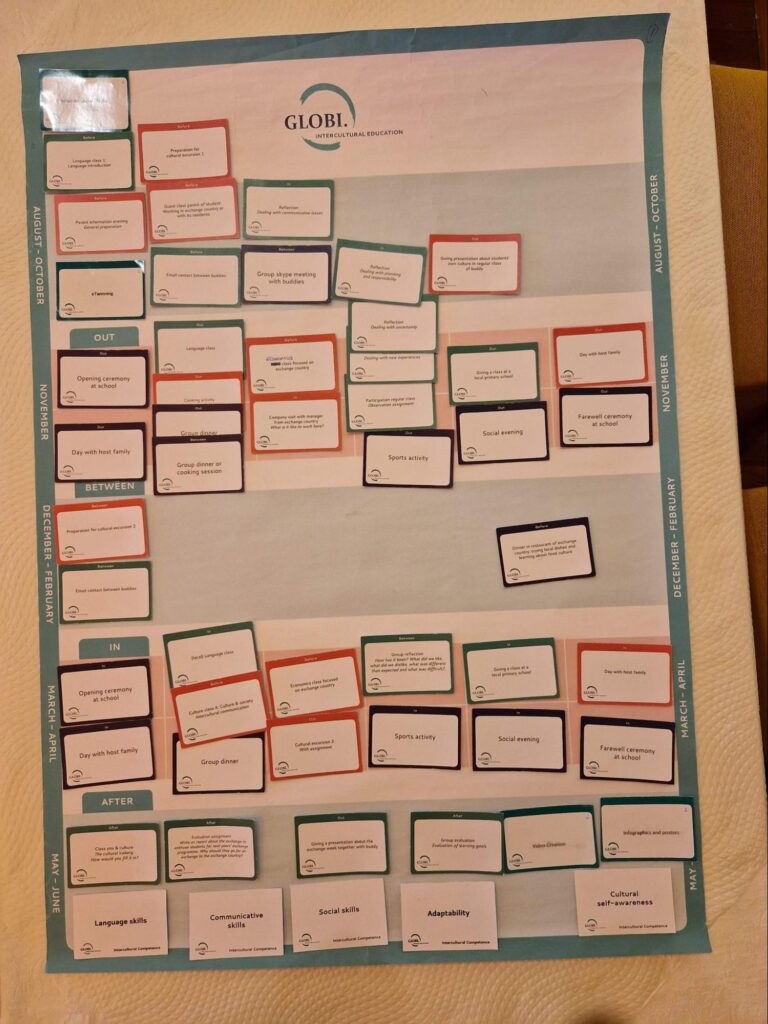How to make your school more international – a practice-based approach
Posted on 1 June 2023 by: admin
Categories:L.I.F.E. project
Course ID
Course name: How to make your school more international – a practice-based approach
Course provider: Euneos.
Place: Benalmadena, Spain
Period: from 19th to 25th March 2023.
Objective
Increasing educational success and decreasing early school leaving.
Experience
The group with whom we shared our mobility in Benalmadena in March 2023 comprised four teachers from Lithuania, five Dutch: Principal and four teachers, and six Italians: Principal, General Administration Manager, and four teachers (from San Salvo (CH)).

Our course was led by three trainers: Jan Hormann, Frans Schmitz (on-line), and Spasia Neshkoska Tsutsuleska.
We had a mix of frontal lessons, hands-on activities, and group work and we also took part in a role-playing game in which we had to plan and exchange between two schools, ours and one from abroad.
We were presented with many topics that dealt with internationalization, starting from the stereotypes that each nation has in the eyes of foreigners, arriving at what we can actually do to make our schools more international.
Strengths
- We learned much about internationalization, from applying for ERASMUS+ funding to creating virtual exchanges through the e-twinning platform.
- We discovered how to become a teacher in different countries from our fellow participants, and the differences in regulations and salaries.
- We knew wonderful people that helped us get an insight into the teaching profession in other countries
- We had to speak English the whole day, so our English got better, at least our speaking skills
- We had the opportunity to know better a colleague of ours and to share our experiences and points of view about many topics.
Weakness
- The course was confirmed late, so it was difficult to find lodging near the Sensara resort, the location at which the course was held, so we had a long commute time
- About half of the participants were Italians and only two foreign countries were represented: The Netherlands and Lithuania. Having more countries would have benefited us a lot in better understanding similarities and differences in the teaching system throughout Europe.
- The course was aimed at people that can make decisions regarding ERASMUS exchanges (there were three principals and a General Administration Manager), so perhaps we were not the right target for our school, taking into account our role within our organization.
- Activities lasted long through the day, starting at 9 AM and ending at 16.30 PM with an hour lunch break. Activities were fast-paced and it was very tiring.

The exchange planner and the activities we chose


